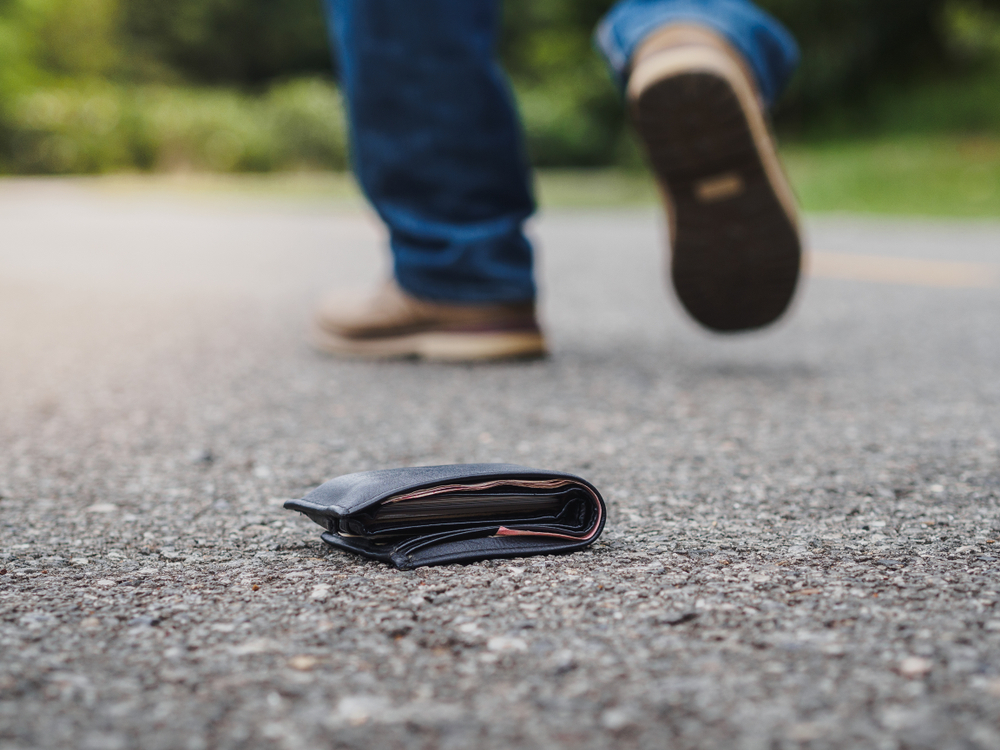It always happens at the worst possible time. You’re in line at the coffee shop, ready to pay for your latte, and suddenly—panic. You reach into your bag or pocket and… nothing. Your wallet has vanished. Cue the dramatic music, flop sweat, and frantic patting of every pocket you own.
Deep breath. Losing your wallet is stressful, but it’s not the end of the world. With quick action and a clear plan, you can protect yourself from fraud, replace what’s missing, and maybe even recover it. Here’s your step-by-step survival guide for the “Oh no, where’s my wallet?!” nightmare.

Retrace Your Steps (Yes, Literally)
Before you go full worst-case scenario, hit pause. Ask yourself: When did I last use it?
- Check the obvious. That jacket pocket, the car seat crack, the counter at home. It’s amazing how often wallets pull a disappearing act only to turn up in yesterday’s jeans.
- Call around. If you were at a store, gym, or restaurant, give them a ring. Lost-and-found boxes are basically graveyards of lonely wallets.
- Don’t forget rideshares or transit. Uber, Lyft, and many public transit systems have lost item reporting tools.
If you’re lucky, it’s sitting at a customer service desk waiting for you. If not, time to move to damage control.
Lock Down Your Cards Immediately
Your wallet may be MIA, but your money doesn’t have to be. The first order of business: freeze your cards.
- Debit cards. Call your bank or hop into the mobile app. Many banks let you lock a card instantly with a single tap.
- Credit cards. Notify your issuer ASAP. Most companies offer 24/7 hotlines for lost or stolen cards.
- Mobile banking. If you use an app, you might be able to shut down your cards before your wallet even hits the floor.
Good news: federal law limits your liability for fraudulent charges. Still, speed matters—the faster you report, the less messy the cleanup.
File a Fraud Alert
Here’s the thing: a lost wallet isn’t just about the stuff inside—it’s about your identity. If your driver’s license or Social Security card was in there, your personal info could be vulnerable.
To protect yourself:
- Place a fraud alert with one of the big three credit bureaus (Experian, Equifax, TransUnion). They’re required to notify the others.
- A fraud alert lasts one year and makes it harder for shady characters to open accounts in your name.
- You can also consider a credit freeze for maximum protection—it locks down your credit file until you lift it.
Think of it as slamming the door shut before thieves even knock.
Replace Your Essentials
Time to rebuild. Here’s what to tackle first:
- Driver’s license or state ID. Head to your DMV’s website for replacement instructions. Some states let you do it online; others require an in-person visit.
- Health insurance card. Call your provider to request a new one. Some also have digital versions you can use right away.
- Other cards. Memberships, student IDs, transit passes, and library cards can all be replaced—usually with a small fee (and maybe a sheepish smile).
Pro tip: Keep a photocopy or a secure digital scan of your most important IDs. It’ll save you tons of time and stress if this ever happens again.
Consider Your Cash & Receipts Gone
Let’s rip off the Band-Aid: if you had cash in your wallet, it’s probably gone for good. Wallet-returning Good Samaritans exist, but they’re rare.
Receipts, gift cards, and punch cards may be replaceable, though. Some stores will reissue them if you explain the situation. And while losing your “buy-10-get-1-free” coffee card stings, it won’t ruin your credit score. Priorities, right?
File a Police Report (Optional but Smart)
Should you bother with the cops? The answer: maybe. A police report can be useful if:
- You’re dealing with fraud on your accounts.
- Your employer or insurance requires documentation.
- Your government-issued ID is missing (a police record helps clear your name if it’s misused).
It’s not about CSI-level wallet hunting. But having an official report creates a paper trail that may help down the line.
Set Up Wallet Backups for the Future
Once you’ve done the hard work of cleaning up, let’s make sure this never turns into a rerun.
- Slim down your wallet. Do you really need every loyalty card and three years’ worth of receipts? Carry only the essentials.
- Keep backups. Store copies of your IDs and cards in a safe place (locked drawer, password-protected cloud folder, or both).
- Go digital. Services like Apple Pay, Google Wallet, and Samsung Pay let you pay without pulling out your physical wallet. Bonus: phones are easier to track if lost.
- Emergency stash. Consider keeping a spare $20 and a backup card in a separate spot—your glovebox, another bag, or even with a trusted friend.
Think of it as “future you” doing “past you” a solid.
Panic Now, Smooth Sailing Later
Losing your wallet feels like a small-scale disaster. Your heart races, your mind spins, and you suddenly remember how many random things you stuffed in there. But with quick action—retracing steps, locking down accounts, replacing essentials—you’ll go from frazzled to back-on-track faster than you think.
And hey, maybe it’s the universe’s way of telling you to finally clean out those old movie stubs and expired coupons you’ve been hauling around.
So next time you pat your pocket and come up empty, remember: yes, it’s stressful. But it’s survivable. Act fast, stay calm, and let your new, streamlined wallet be a fresh start.
By Admin –